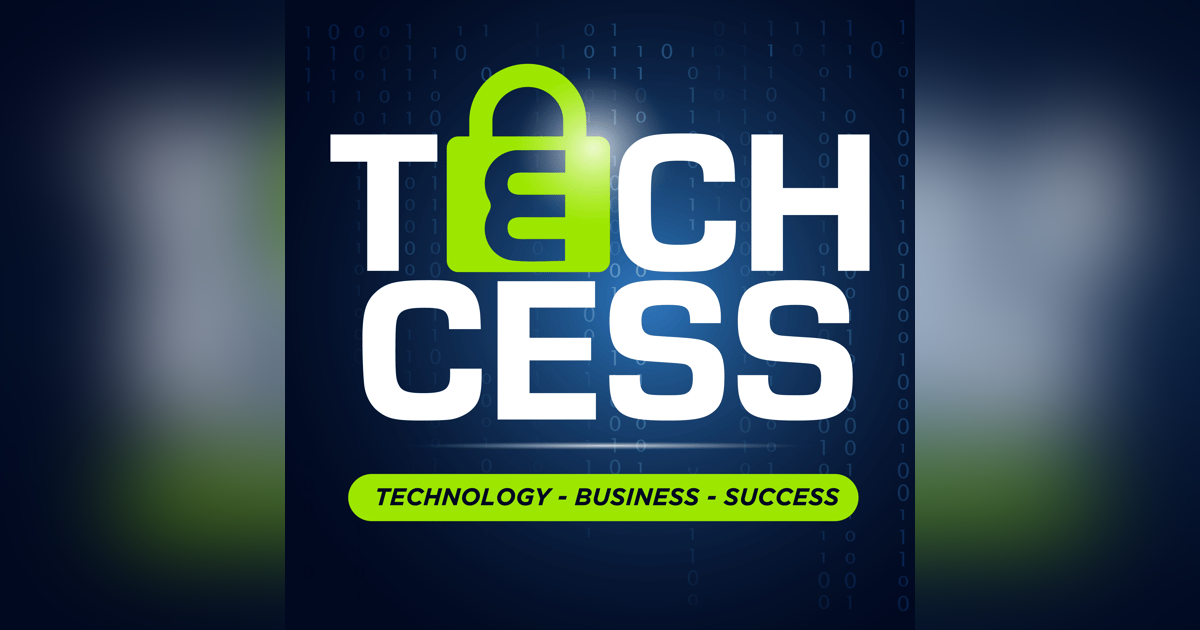Techcess Technology Podcast episode 56: Different types of phishing
What are the different types of hacking your business can be at risk from?
mark from m3 Networks explains the 6 different phishing styles to be aware of in your business
Do you know all about phishing vishing and smishing?
Phishing, vishing, smishing - all types of cyberattacks that you need to be aware of.
You probably already know all about phishing, and if you don't you can check out our other episodes of Techcess in which we ran you through what those are how they work.
Here you go!
But to summarise right now, in short someone sends you a fake email that looks like it's from a credible source in order to get you to click on a link or give away your personal information.
Let's draw on episode eight of Techcess for a quick catch up on phishing...
"So we're talking purely about being able to spot efficient emails and some of the ways that attackers will try and trick you into taking some action or doing whatever is they want you. So the first thing we are gonna talk about is who the email was from. Okay. So focusing on the, from header in your email, now, I just want to say, if you are checking your email on your phone, you quite often do not see the actual email address that the email comes from.
You'll just see the sender's name and that name can be made up to be anything, regardless of who the email address is from. Okay. You wanna make sure if you're on a mobile you'd normally if you click on the email name, it will expand and I'll actually show you the email address that email came from. So that's the first thing to check, and we know that I think it's about 70% of email is read on a mobile phone.
So it's quite a common thing. So make sure you are checking that you can see the phone address on your smartphone or tablet or one of them word device you're using to read your email. So the first thing. Do you recognize the sender's email address? And that seems quite an obvious one, but you know, make sure that the email address is someone that you would normally or regularly communicate with."
If you want you can click here to listen to more of that episode that goes more in depth on phishing:!
The dangers of phishing style attacks
In this episode we wanted you to be made fully aware of the growing dangers of cyberattacks as these hackers and their methods become more sophisticated.
All of these attacks are very common and can be very successful, so it's important to be aware of them and know how to protect yourself.
One of the best ways to protect yourself is to never click on links or respond to messages from sources that you don't trust.
You should also never give out your personal information unless you're sure that the source is legitimate.
And always best to make sure that your computer is protected with antivirus software and a firewall.

If you prefer reading to listening, you can download the full printable written-to-be-read transcript of the episode by clicking the below link.
Mark from m3 Networks talks us through everything we need to know when it comes to being aware of these cyberthreats.
In an area with restricted data? Click this for a smaller sized version of the episode.
Episode transcript preview
You would have probably already seen the link to the PDF above.
Here's a very quick sneak preview of that transcript of episode 56
"And the first one is vishing and that's spelt with a V and this is like a fishing attack, but it's done over the phone. Now someone will call and they'll pretend to be a person or a company that, you know, potentially a supplier, perhaps even one of your customers.
Or a representative of them. They'll ask you to take action such as giving them remote access to your device or visiting a website.
Now you imagine if someone phoned up pretending to be from your IT support company, asking one of your users to give them remote access to one of their computers. I mean, if your IT company is a huge company with hundreds of technicians it might be very, very difficult for you to know who all those people are. So it might be really easy for a scammer to convince someone, to give them remote access to their machine?"
Want to get more 'Techcess' in your business?
Get more valuable technology insights from m3's blog pages, here.
Mark Riddell's technology podcast "Techcess" is an m3 Networks production. Mark and the team have created this podcast to help you and their clients understand how technology can help them in their industry and business, including helping them with cyber security solutions. To find out more about Mark Riddell and the rest of the m3 team, visit them here and follow them on Linkedin.
If you want to get in touch about technology or cyber security, just address an email directly at Mark here. He'll be very happy to hear from you.
Thanks for listening! If you enjoy this episode, make sure you follow the podcast via your favourite app.
Fancy giving the Techcess technology podcast a review and rating? Click here - https://www.techcesspodcast.com
Techcess is a podcast from m3 Networks
Transcript provided by Podknows Podcasting
















